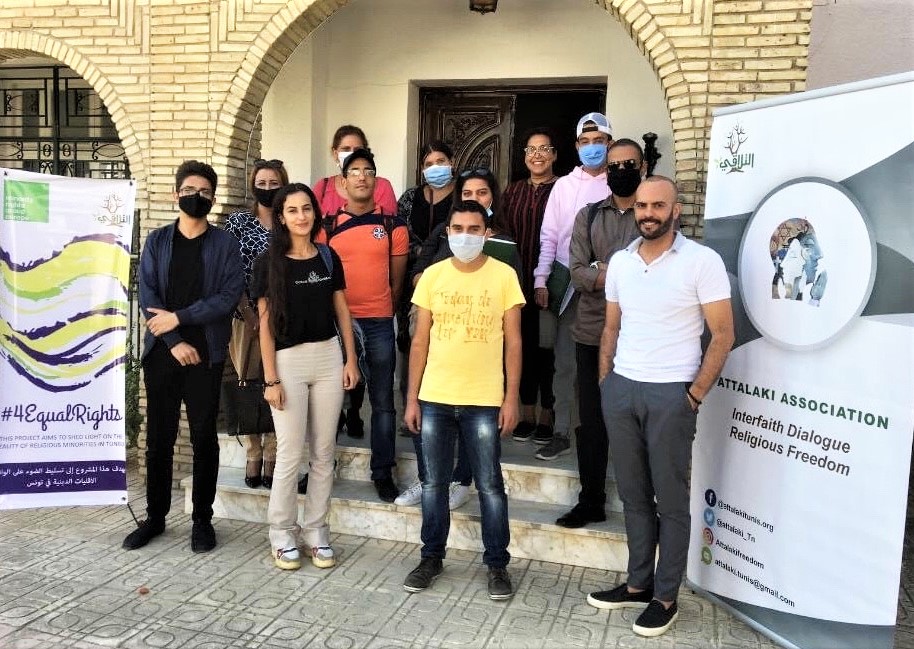Achivements
4EqualRights
In August 2020, Attalaki received a grant within the program “Protecting the rights of religious minorities” funded by The Norwegian Agency for Development Cooperation (NORAD) and being implemented by Minority Rights Group Europe (MRGE).
This project, titled 4EqualRights, aims to train a group of activists belonging to different faiths on key themes, including the concepts of human rights and minority rights as an international standard, and in particular within the framework of Tunisian legislation and international conventions and agreements ratified by the Republic of Tunisia. It also includes the concept of citizenship encompassing diversity, including types and issues of diversity, pluralism within the framework of democratic systems, while highlighting the reality of Tunisia. This project aims to enable participants to improve their capacities and skills in terms of knowledge of their rights in Tunisia, their legal status at the national level, the definition and the conception of the freedom of conscience of thought and religion as well as basic training in initiation to strategic communication and advocacy.
This project is composed of three training sessions as follows:
- First session: Initiation to freedom of conscience and religion in the Tunisian Constitution and the legal status of religious minorities in Tunisia, provided by Mrs. Ikram dridi, university professor in public law. Testimony of four women belonging to different religious minorities on forms of injustice and discrimination that have been suffered in the family, at work, and in police stations.
- Second session: This session focused on freedom of conscience and religion and conventions ratified by the Republic of Tunisia in which the first point of the session is, the definition of freedom of religion and conscience, the latter in principle, does not concern the state and is a private matter.
The state, moreover, only intervenes to assure it to all citizens. It was also emphasized on the importance of the distinction between the internal aspect of this right (namely the religious conviction, which is part of the freedom of thought) which has no limit, and the external aspect (the fact of belonging to a community, the celebration of cults etc. which falls within the freedom of religion and worship) the latter is limited for different reasons which are determined by international law.
- Third session: This training workshop focuses on the theme “Initiation to advocacy and strategic communication” which is part of the “for Equal Rights” project.
This training aims to promote a more serious awareness of the cause of minorities which was, and everywhere in the world, a decisive and unavoidable point for democracy and in particular in the transitional context in which Tunisia finds itself.
To succeed in its cause, civil society needs clear mechanisms and a theme displayed to politicians, the media and public opinion, to promote its struggle and crown its activism for the protection of different religious minorities in Tunisia.
The project provided a safe space to group of various religious minorities to freely express the forms of persecution and suffering that they face daily from society, state institutions and their families participated in the project implementation stages. As a result of these workshops, an advocacy policy paper was drafted and submitted to members of Parliament, the Minister of Religious Affairs, and national and international organizations calling for making the voice of religious minorities heard in decision-making mechanisms and granting them equal rights with the rest of the citizens.


